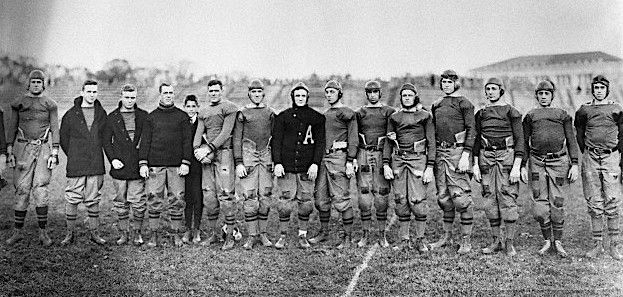Authors:
Historic Era:
Historic Theme:
Subject:
| Volume 71, Issue 4


Authors:
Historic Era:
Historic Theme:
Subject:
| Volume 71, Issue 4
Editor's Note: In a conversation with the editors of American Heritage recapitulated here, General Omar N. Bradley spoke about the years of his closest association with Eisenhower, from 1943 through 1945. Following his service in World War II, General Bradley served as Army Chief of Staff and Chairman of the Joint Chiefs of Staff.

Ike and I were in the same cadet company at West Point, so I saw him several times a day at formations. He was very well liked by everyone and was very active in class affairs. He was on the football team until he hurt his knee, and after that he was a cheerleader. He was also on the staff of the yearbook put out by the graduating class. We had a lot of good men in our class, but I don't think we looked ahead to wonder if Ike or any other one would attain high rank. You see, promotions came slowly at that time. In fact, some of the infantry officers were second lieutenants for as long as six years. If you were young for your class (as Ike was not, but I was), you thought you'd be lucky to become a colonel by the time you were sixty-four.
I didn't actually serve with Ike until 1943. I arrived in North Africa on February 24, just two or three days after the action at the Kasserine Pass started. I was at Eisenhower's headquarters in Algiers until the twenty-eighth, and then I went up to the front. You see, I was sent over there as sort of a personal observer, or representative, of General Eisenhower: he told me that he was not going to prescribe where I went, but he wanted me to take a look at things I felt he would want to see if he had the time. Following that directive, I went up to the front to talk with some of the men who had been in the Kasserine fight. I wanted to find out how effective our equipment was and how effective our training was.
We were working on a shoestring in North Africa, defending part of a wide front thinly. In such a situation you're apt to get smashed somewhere, and that's what happened at the Kasserine Pass. But Ike wasn't discouraged. He came to the front frequently, at least once every week or ten days. He never gave direct orders to the men in the field, of course, but he liked to talk with them. I've seen him sit in the shade, leaning up against a tree, and sign autographs for three-quarters of an hour. I remember one